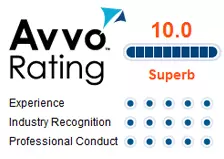Several recent news articles have indicated that instances of drunk driving have declined over the last 10 years. However, these articles indicate that instances of drugged driving have increased.
For example, according to the Chicago Tribune, 16% of drivers tested on a weekend night test positive for drugs. The same article finds that the number of drivers with blood alcohol contents above .08 in 2007 was less than half what it was in 1996. The same point is made by a recent CNN article.
I find these articles to be of particular interest because I’ve been predicting that drugged driving will be the new frontier for traffic enforcement in Michigan. Here’s why.
Every Michigan drunk driving case produces a minimum of $1,500.00 of revenue for the courts. The number is bound to be higher, but if the number of drunk driving arrests (about 50,000 per year) is multiplied by this number the revenue produced is a staggering 75 million dollars! There is no doubt in my mind that the actual number is probably at least twice and perhaps even three times this projection.
Now, let’s assume there was a technology or a law that would immediately stop all drunk driving. In this time of already falling tax revenue the question is how the state could possibly replace this income? The answer is to increase the number of drugged driving arrests!
Not all that long ago there was no legal limit. Eventually breath testing technology got to the point that it was effective and cheap enough for use in law enforcement, and the first laws including a legal limit began appearing around the country. At this time the legal limit was .15. The legal limit was later reduced to .10 and then in 2003, Michigan’s drunk driving laws were changed to the current .08.
As you might imagine, lowering the legal limit changes more otherwise lawful drinking drivers into tax-paying convicted drunk drivers. This is necessary because as more and more people decide not to drink and drive, the law makers must find a way to keep the tax revenue (fines and costs paid by convicted drunk drivers) constant.
The law will probably eventually be lowered to .05, but before that happens, drugged driving arrests will become increasingly common, and Michigan already has a broad drugged driving law on the books.
If you are arrested for drugged driving, contact the Barone Defense Firm today for your FREE case review.









